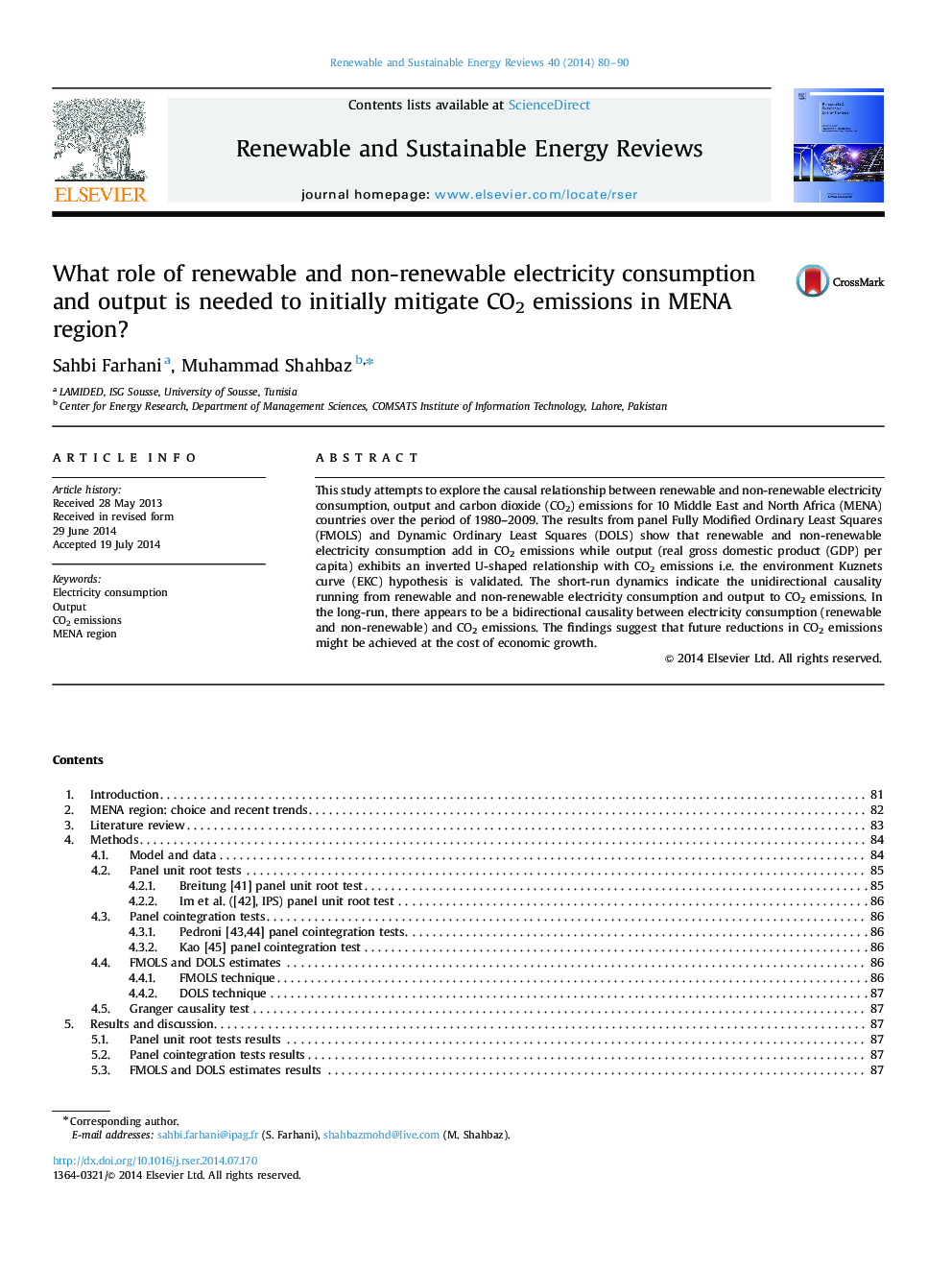| Article ID | Journal | Published Year | Pages | File Type |
|---|---|---|---|---|
| 8118432 | Renewable and Sustainable Energy Reviews | 2014 | 11 Pages |
Abstract
This study attempts to explore the causal relationship between renewable and non-renewable electricity consumption, output and carbon dioxide (CO2) emissions for 10 Middle East and North Africa (MENA) countries over the period of 1980-2009. The results from panel Fully Modified Ordinary Least Squares (FMOLS) and Dynamic Ordinary Least Squares (DOLS) show that renewable and non-renewable electricity consumption add in CO2 emissions while output (real gross domestic product (GDP) per capita) exhibits an inverted U-shaped relationship with CO2 emissions i.e. the environment Kuznets curve (EKC) hypothesis is validated. The short-run dynamics indicate the unidirectional causality running from renewable and non-renewable electricity consumption and output to CO2 emissions. In the long-run, there appears to be a bidirectional causality between electricity consumption (renewable and non-renewable) and CO2 emissions. The findings suggest that future reductions in CO2 emissions might be achieved at the cost of economic growth.
Related Topics
Physical Sciences and Engineering
Energy
Renewable Energy, Sustainability and the Environment
Authors
Sahbi Farhani, Muhammad Shahbaz,
